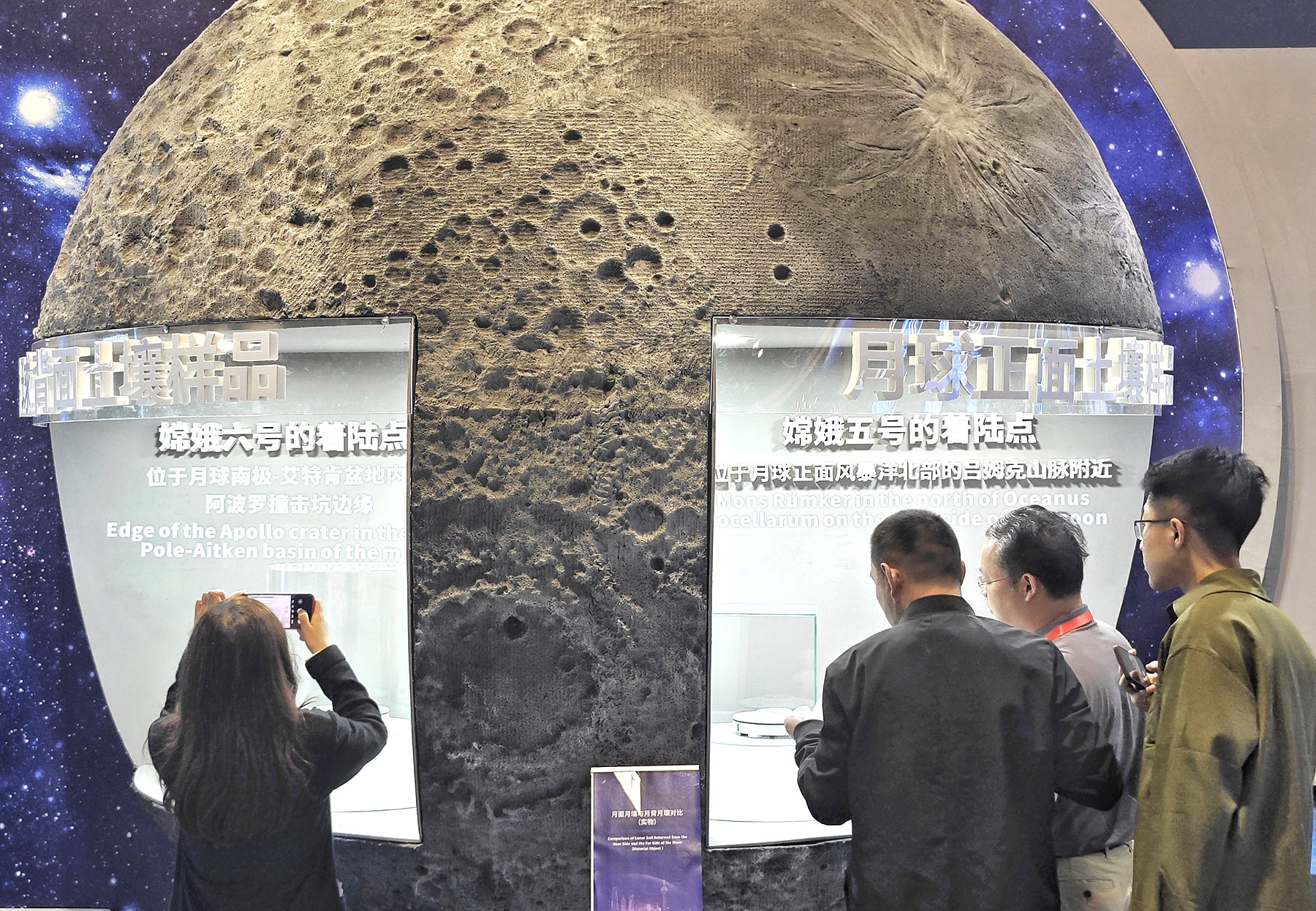Deal signed with selected institutions during an event marking 10th Space Day

In its latest move to promote international space cooperation, China has agreed to distribute lunar samples collected by its Chang'e 5 mission to foreign scientists.
At a ceremony in Shanghai on Thursday marking the country's 10th Space Day, the China National Space Administration announced the results of international applications to borrow the precious lunar material.
Seven universities and institutes from six countries were selected: the Institut de Physique du Globe de Paris in France; the University of Cologne in Germany; the University of Osaka in Japan; Pakistan Space and Upper Atmosphere Research Commission; The Open University in the United Kingdom; and Brown University and Stony Brook University in the United States.
READ MORE: Study on Chang'e-5 lunar sample unveils early moon crust building process
Agreements were signed with representatives of the selected institutions during the event.
The CNSA began accepting international applications for the Chang'e 5 samples in November 2023. By the deadline at the end of 2023, it had received 24 applications from 11 countries and international organizations, requesting a total of 71 sample sets.
A panel of experts reviewed the applications based on the Chinese government's Procedures for Requesting Lunar Samples and Rules for Management of International Cooperation in Lunar Samples and Scientific Data, ultimately selecting the seven institutions.
"Chang'e samples belong not only to China, but also to the world, representing a shared treasure for all humanity," CNSA Administrator Shan Zhongde said at the ceremony.
He emphasized that China's lunar exploration efforts have always upheld principles of equality, mutual benefit, peaceful use and win-win cooperation, adding that the country is committed to sharing its scientific achievements with the global community.
"We will continue accepting international applications for lunar samples and look forward to global scientists making further discoveries to expand human knowledge and benefit all mankind," he said.
Wang Yanan, editor-in-chief of Aerospace Knowledge magazine, said the move demonstrates China's commitment to open scientific exchange and collaborative lunar research.
"Scientists around the world are also eager to have access to the Chang'e 6 samples — the first ever collected from the moon's far side, which researchers believe hold enormous scientific value. I'm sure the Chinese government will soon open international applications for those samples," he said.
The Chang'e 5 robotic mission, launched on Nov 24, 2020, from the Wenchang Space Launch Center in Hainan province, successfully landed on the moon on Dec 1. It was the third spacecraft to touch down on the lunar surface in the 21st century, following China's earlier Chang'e 3 and 4 missions.
ALSO READ: Out of this world
The landmark mission returned with 1,731 grams of lunar rocks and soil on Dec 17, marking the world's first lunar sample return in 44 years. It made China the third country — after the US and the former Soviet Union — to retrieve materials from the moon. The CNSA distributed the first batch of Chang'e 5 samples in July 2021, handing over 17.5 grams to scientists at 13 domestic research organizations conducting 31 scientific projects.
To date, eight rounds of samples have been distributed to Chinese researchers, supporting the work of more than 100 research teams.
The samples have enabled Chinese scientists to achieve significant academic breakthroughs, including the discovery of the sixth new lunar mineral — Changesite-(Y) — which falls under the merrillite category. It is the first lunar mineral identified by Chinese researchers.
At the invitation of China's permanent mission to the United Nations in Vienna, representatives from Kenya, South Africa and envoys from Venezuela, Belarus, Egypt, Malaysia, Indonesia and Kazakhstan in Vienna traveled to China to participate in a series of activities for the country's Space Day.
zhaolei@chinadaily.com.cn


